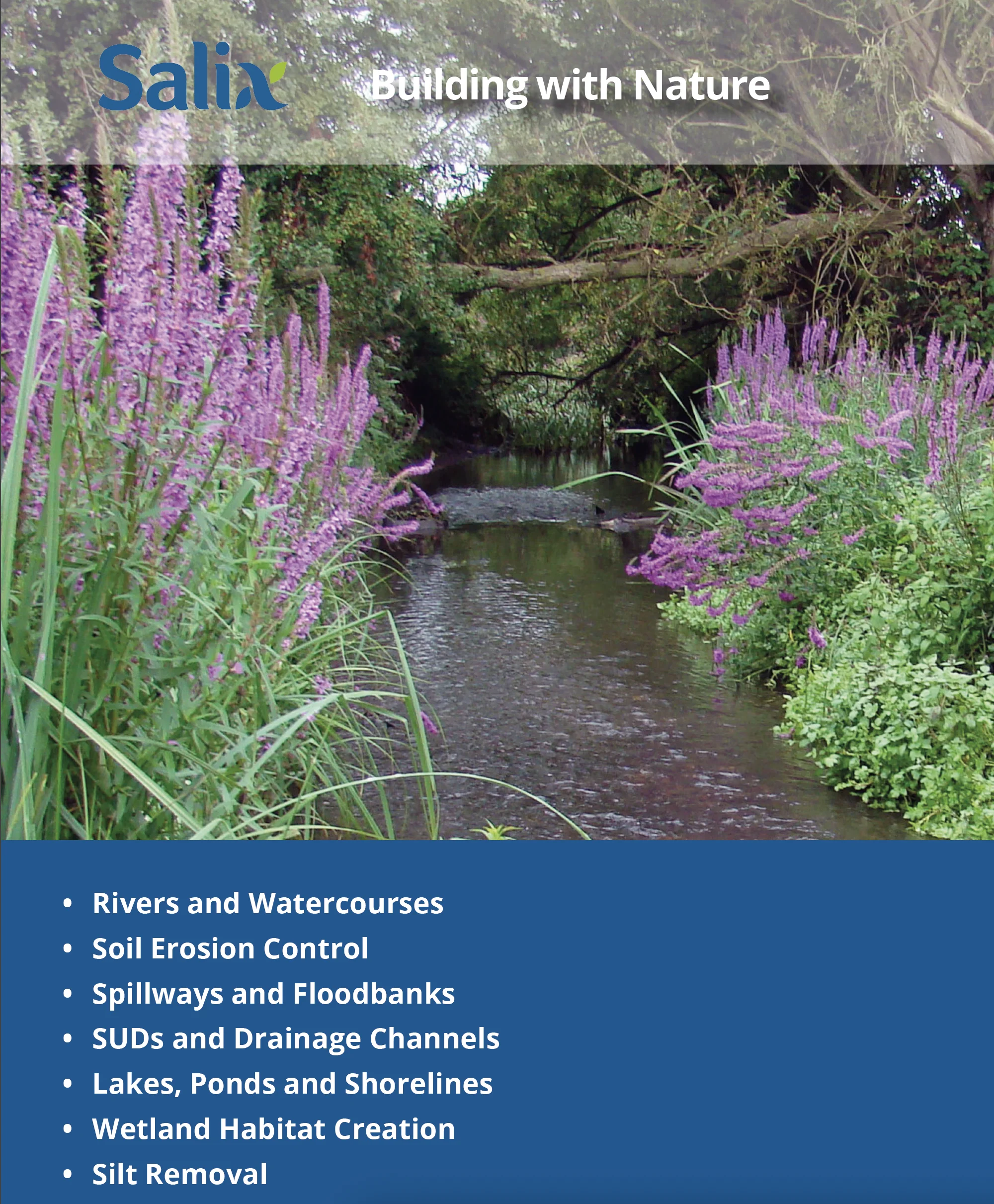

Working directly with ethical, organic and sustainable suppliers in Sri Lanka, each year Salix imports hundreds of tonnes of compressed coir fibres and turns them into Coir Rolls and Pallets at its Thetford nursery in Norfolk.
Salix is the only UK manufacturer and Europe’s largest producer of pre-established coir fibre rolls, producing thousands of metres of Coir Rolls and Coir Pallets each year for waterway bank protection and to establish new habitats.
Plants grown in Coir Rolls can control erosion on riverbanks and help manage flood risk as part of a Natural Flood Management approach. Habitat is created for invertebrates, amphibians, fish, birds and waterway mammals like otters and provides particularly important habitat for the UK’s fastest declining mammal, the water vole.
Historically, stone and concrete revetments have been the usual method of riverbank erosion control, but Salix uses bioengineering techniques to replace these ‘hard’ engineering revetments with a greener and more sustainable ‘soft’ solution.
David Holland, Technical Director for Salix, explains:
“We have developed a close relationship with a particular village in Sri Lanka, helping to support the local community and enabling us to sustainably import large quantities of high quality coir fibre.
The village was virtually wiped out during the 2004 Tsunami and the local people are still rebuilding their community. Salix’s coir business supports the entire village of 400 people and allows higher than average earnings for those employed in the fibre processing.
By importing highly compressed coir fibres and then manufacturing here in the UK, we reduce our coir fibre shipping volumes by over 80 per cent compared to all other UK suppliers. This means the products have a low carbon footprint, as well as creating an important economic boost to the villagers in Sri Lanka.”
[efscolumn lg=”4″ md=”4″ smoff=”0″ mdoff=”0″ lgoff=”0″ ]

[efscolumn lg=”4″ md=”4″ smoff=”0″ mdoff=”0″ lgoff=”0″ ]

[efscolumn lg=”4″ md=”4″ smoff=”0″ mdoff=”0″ lgoff=”0″ ]

Coir fibre is the outer husk of the coconut and a waste product of the coconut industry. The woody characteristics and high lignin content of the coir fibres mean it takes five to ten years for them to rot away – enough time for plants to root and protect the soil.
The fibres are pH Neutral so most plants can grow in them and the coir is inert and doesn’t release any toxic tannins or compounds as it biodegrades.
Salix, now the largest grower of native wetland and wildflower plants in the UK, plants the Coir Rolls and Coir Pallets with a diverse range of wetland and wildflower plants.
David explains:
“To fulfil the contract to create new reedbeds and wetlands for the 2012 Olympic Park – the largest single bioengineering project ever seen in the UK which required over 400,000 plants planted in 11,000 Coir Pallets (22,000m2) – we invested in new growing beds at our Thetford nursery.
This led to the creation of the largest nursery of its kind in the world and the legacy of that investment means we can hold greater stock for longer periods, and develop a product that is really mature and provides instant habitat for key species such as water voles.”


Comments are closed.